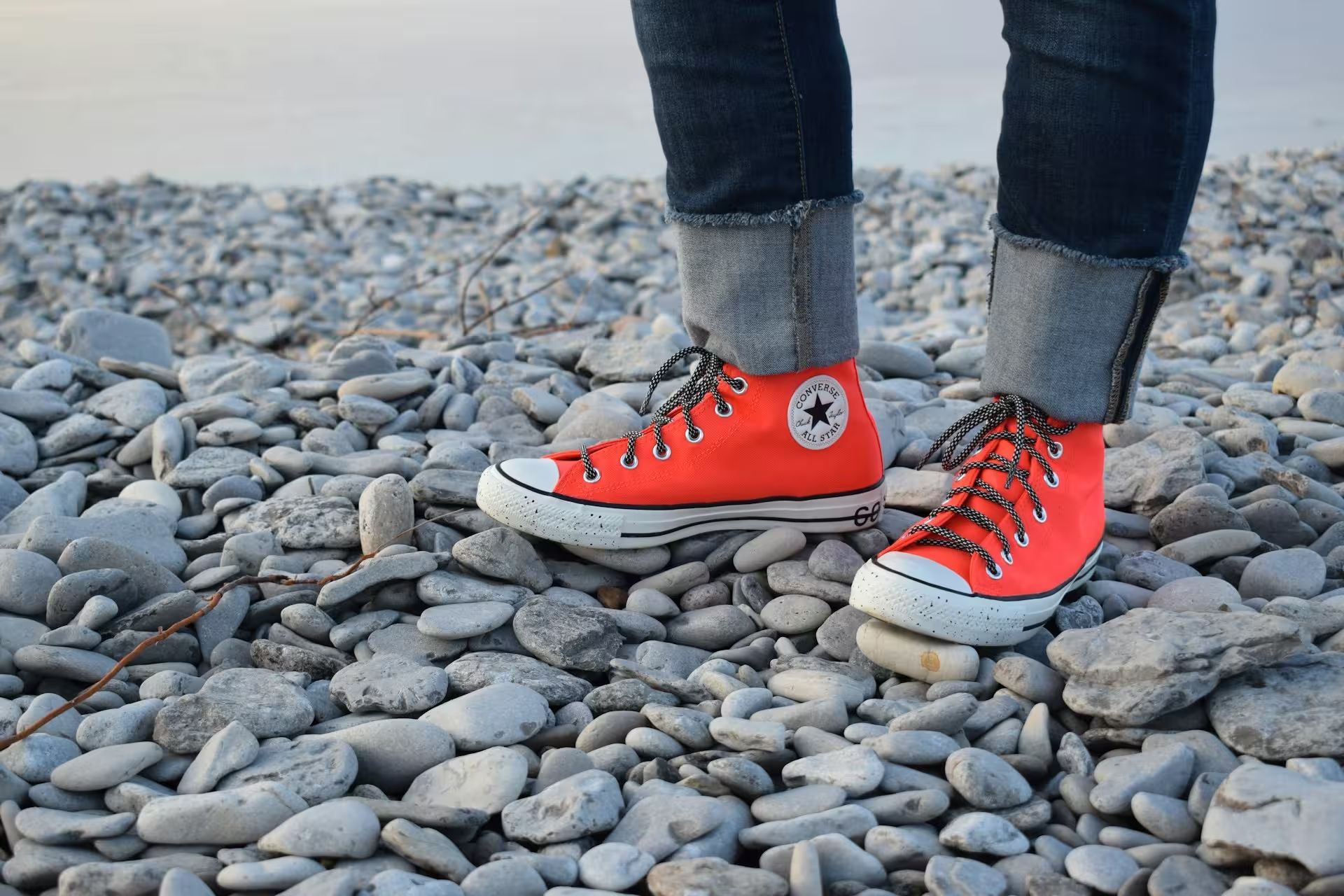Imagine stepping onto your college campus. The hallways buzz with a frenetic energy you haven’t felt in years. It’s meme-fueled inside jokes, blazing-fast TikToks, passionate debates about issues that matter… a glimpse into the world Gen Z inhabits. Now imagine trying to sell to this crowd with yesterday’s marketing playbook. It won’t work.
Gen Z is more than just a demographic – they’re a force shaping the future of consumer culture. Born into a digitally connected world, this generation is radically redefining expectations of what a brand should be. Understanding their values and priorities is no longer optional; it’s essential for businesses that want to stay relevant, attract talent, and connect with the next generation of customers.
Who is Gen Z? Key Traits & Values
Born between roughly 1997 and 2012, Gen Z is the most diverse and digitally native generation in history. They’ve grown up with technology woven into every aspect of their lives, shaping their expectations of brands. Here’s what sets them apart:
- Digital Natives: According to The Global State of Digital 2022 by Hootsuit, Gen Z spends an average of 4-5 hours a day on mobile devices, multitasking across social media, streaming services, and online communication. The internet isn't a separate world – it's interwoven into every aspect of their lives. They multitask across devices, consume information rapidly, and have a short attention span for traditional advertising.
- Socially Conscious: Gen Z cares deeply about the world around them. They seek brands actively working towards inclusivity, sustainability, and social justice. This isn't just lip service – 75% of Gen Z consumers are willing to pay more to support socially responsible brands. "I won't buy from a company that doesn't make an effort to be sustainable or give back to the community," stated a participant in The Deloitte Global 2022 Gen Z and Millennial Survey."
- Authenticity Seekers: Gen Z grew up bombarded with carefully crafted marketing. They demand transparency, can spot inauthenticity quickly, and resonate with raw, unscripted content that feels 'real'. As one Gen Z interviewee in McKinsey & Company research on Generation Z stated, "I can smell fake from a mile away. If a brand seems like it's trying too hard, I'm out." This is backed up by data: 82% of Gen Z trust a company more if they use real customers in their ads.
- Entrepreneurial Spirit: Gen Z dreams of making their own mark. They're less drawn to traditional corporate jobs, instead admiring innovation and valuing companies that support their ambitions. A young Gen Z entrepreneur emphasized this in The New York Times: "I don't want to work for someone; I want to build something myself." This sentiment isn't isolated - a study revealed that 62% of Gen Z students aspire to start their own business.
- Mental Health Aware: Gen Z prioritizes mental and emotional well-being more openly than previous generations. They appreciate brands that destigmatize mental health and offer support or resources. As a Gen Z social media influencer expressed, "It's okay to not be okay, and we should be able to talk about it." This increased focus on mental health is backed by concerning data, with anxiety and depression rising significantly among Gen Z.
Why Brands Must Win Over Gen Z
Purchasing Power
Their spending power, both directly and through influence over parents, is growing rapidly.
- Direct Spending: Gen Z already has significant disposable income and it's set to increase. Don't just think of them as the future consumer; they hold buying power today. Marketers should research their spending habits and how their tastes differ from those of previous generations.
- Parental Influence: Gen Z's opinions often sway family purchasing decisions on everything from tech products to vacations. Brands that successfully connect with this generation can benefit from increased visibility and a wider customer base.
Trendsetters
They are quick to adopt new technologies and have major cultural influence. What's cool with Gen Z often trickles up to older generations.
- Early Adopters: Gen Zers have grown up with rapid technological advancements, making them comfortable experimenting with new apps, gadgets, and online platforms. Understanding their early adoption patterns can help brands predict emerging trends.
- Tastemakers: Gen Z heavily influences what becomes popular on social media – the memes they share, the products they rave about, and even the slang they use. Brands that can tap into the cultural zeitgeist of Gen Z gain an edge in reaching a wider audience.
Tomorrow's Workforce
Attracting top Gen Z talent means building a brand that reflects their desire for purpose and innovation.
- Purpose-Driven Employers: Gen Z wants to work for companies that align with their values and positively impact the world. Brands must clearly articulate how their work makes a difference beyond just profits.
- Innovation and Flexibility: Gen Zers crave opportunities for growth and don't want to be stuck in rigid corporate hierarchies. Emphasize your brand's commitment to innovation, flexibility in work styles, and opportunities to experiment with new ideas.
How to Build a Brand that Resonates with Gen Z
Embrace Purpose and Values
Gen Z consumers want their spending to make a difference. Partnering with causes like climate action, mental health awareness, or LGBTQ+ rights shows them you care about the same issues they do. But remember, they're savvy enough to spot lip service from a mile away. For example, Dove's long-running "Real Beauty" campaign celebrates body positivity and inclusivity, values that resonate deeply with Gen Z. Back up your purpose with concrete actions; involve Gen Z customers in the decision-making process or even let them contribute to your charitable initiatives.
Prioritize Digital Fluency
If your website is slow or not optimized for mobile, Gen Z will hit "back" immediately. They spend significant amounts of time on social media, so experiment with platforms like TikTok where short, snappy videos and creative challenges thrive. Embrace augmented reality (AR) to supercharge product experiences—like allowing users to try on clothes or makeup virtually, as many global beauty brands are doing. Consider innovative uses of tech, like Nike's app that creates personalized training plans, appealing to a fitness-conscious Gen Z.
Get Creative with Visuals and Storytelling
Gen Z craves content that's fast, genuine, and interactive. Short-form videos reign supreme across platforms like TikTok and Instagram Reels. Showcase user-generated content that feels relatable and unpolished rather than overly staged advertising. Incorporate interactive elements like polls, quizzes, or AR filters to keep Gen Z engaged. Remember, it's not just about selling a product; it's about telling stories that connect on an emotional level.
Champion Inclusivity
Diversity and representation aren't optional for Gen Z customers – they see it as the bare minimum. Your marketing visuals need to reflect a diverse world. Go beyond surface-level inclusivity and take a stand on social justice issues. Beauty brand Fenty by Rihanna gained immense popularity by catering to a wide range of skin tones, celebrating diversity when many mainstream brands were slow to do so.
Foster Collaboration and Community
Gen Z likes co-creating with the brands they love. Partner with Gen Z influencers, especially lesser-known micro-influencers in specific niches, who have highly engaged audiences. Run campaigns that encourage user-generated content and create spaces (both physical and online) where Gen Z consumers can connect based on shared interests around your brand. In Vietnam, brands like Biti's have successfully re-energized their image through music collaborations with young Vietnamese artists and creative content that engages younger audiences.
Personalize the Experience
Gen Z wants to feel seen and heard as individuals. Use data strategically to offer personalized product recommendations, targeted promotions, or tailored content. Be transparent about how their data is used, as privacy is an important factor. Sephora's in-store tech and loyalty program provide personalized recommendations, fostering a unique shopping experience.
Embrace Humor and Self-Awareness
Gen Z appreciates brands that can poke fun at themselves and show they understand internet culture. Meme-infused content (when used cleverly and in the right context) can be a powerful way to connect. Brands like fast-food chain Wendy's have gained traction for their witty social media roasts and self-deprecating humor. Remember, though, the key is to do it naturally; overly forced attempts to be "cool" will backfire.
Case study: Brand Doing It Right

Converse, founded in 1908, is an athletic footwear company with an iconic history. While the brand’s Chuck Taylor All-Stars remain timeless classics, Converse faced the challenge of connecting with younger consumers who increasingly preferred athleisure and limited-edition streetwear over classic sneakers. To re-energize the brand’s relevance, Converse made a strategic shift to resonate with Gen Z.
Converse’s transformation centered on personalization, collaboration, and championing youthful self-expression. They launched extensive customization options, allowing customers to design their own unique Chucks. The brand partnered with young artists, musicians, and influential Gen Z figures, tapping into their creativity and leveraging their existing fanbases. Converse consistently embraced subcultures – from skateboarding to LGBTQ+ communities – through inclusive campaigns and targeted initiatives that aligned with Gen Z values. This successful pivot has cemented Converse as a favorite among Gen Z consumers, proving that even established brands can evolve and attract a new generation.
The Opportunity of a Lifetime
Connecting with Gen Z demands sincerity that goes beyond superficial attempts to appear “cool” or trendy. Smart brands don’t just chase trends, they understand the deeper motivations driving Gen Z’s choices. Explore where your brand’s core values genuinely overlap with those of this generation – perhaps a shared commitment to sustainability, inclusivity, or tech-driven solutions. Emphasize these shared passions. Offer products, experiences, and messaging that resonate with their desire to shape a better world.
Brands that build genuine connections with Gen Z not only gain loyal customers today, but also plant seeds for future success. Gen Z’s influence as tastemakers and tomorrow’s workforce strengthens over time. By demonstrating that your brand understands them and shares their commitment to positive change, you invest in long-term relevance and brand affinity.

